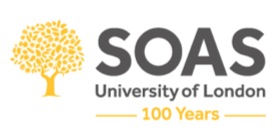Time: 13:00-15:00 (UK Time), Wednesday, 7 December 2022
Presenters: Dr. Silvia Gaia and Prof. Thankom Arun, University of Essex
Chair: Prof. Victor Murinde, SOAS University of London
Abstract
We explore the factors that triggered the dismissal of Cyrus Mistry as Chairman of Tata Sons by using the theoretical lenses of socio-emotional wealth (SEW) theory and its FIBER dimensions. We gathered information on this case from newspaper articles, press releases and a series of semi-structured interviews with key actors. We found that the arguments used to explain Mistry’s dismissal are directly associated with the FIBER dimensions of family control and influence (F), binding social ties (B) and emotional attachment (E). We found the dimension of identification of family members (I) indirectly associated with the case via the dimensions of emotional attachment and bonding social ties, which strengthen the degree of identification of family members to the business. In contrast, we did not find the dimension of renewal of family bonds through dynastic succession (R) as strictly relevant. Our findings show the fundamental role of family control and influence, which cannot be placed at the same level as the other dimensions. It covers a fundamental position as its existence is key to the existence of the different dimensions. This study contributes to the literature on socio-emotional wealth by showing how the FIBER dimensions influence each other.
Silvia Gaia is a Reader in Accounting at Essex Business School. She previously worked as Lecturer in Accounting at the University of Cagliari (Italy). She held visiting scholar positions at the University of Birmingham (UK), HEC Montréal (Canada) and Columbia Business School (USA).
Silvia’s research mainly relates to Social and Environmental accounting and reporting and Corporate Governance. She has published her research in highly reputed academic journals such as Accounting, Auditing and Accountability Journal, British Accounting Review, Accounting Forum, Journal of Business Ethics, European Journal of Finance, International Business Review, Corporate Governance, International Business Communication, Journal of Management and Governance and Journal of Applied Accounting Research.
Silvia is currently the Chair of the Special Interested Group of the British Accounting and Finance Association (BAFA) on Financial Accounting and Reporting (FARSIG). She is an editorial board member of Accounting Forum and Journal of Accounting in Emerging Economies and has acted as a reviewer for several internationally recognised journals.
Thankom Arun is a Professor of Global Development and Accountability at the Essex Business School. Currently, he is a Professor Extraordinaire at the Stellenbosch Business School, South Africa and a Research Fellow at IZA, Bonn. He is also Chairing an academic steering group on Financial inclusion in the International Cooperative and Mutual Insurance Federation (ICMIF).
He is a Fellow of Academy of Social Sciences and a Fellow of the Royal Society of Arts, Manufactures and Commerce. Previously, he was Professor and Director of the Institute of Global Finance and Development (IGFD), at the Lancashire Business School, UCLan; Visiting Professor at the University of Rome and held academic positions at Manchester and Ulster.
Thankom's research has been a move away from arbitrary disciplinary constraints towards an interdisciplinary learning process to understand the global challenges, particularly in developing/emerging country contexts. Over the years, the research carried out aims to understand, theorize and tackle the problems created by the uneven relationships between business, society and economy in an interdisciplinary framework. Thankom's recent research interests are in the areas of Fintech, financial inclusion, climate change and sustainability.



